Is oatmeal a good fertilizer? Discover the surprising benefits oatmeal can offer your plants
The common breakfast item can be used as both a successful plant feed and pest deterrent
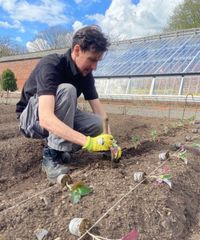
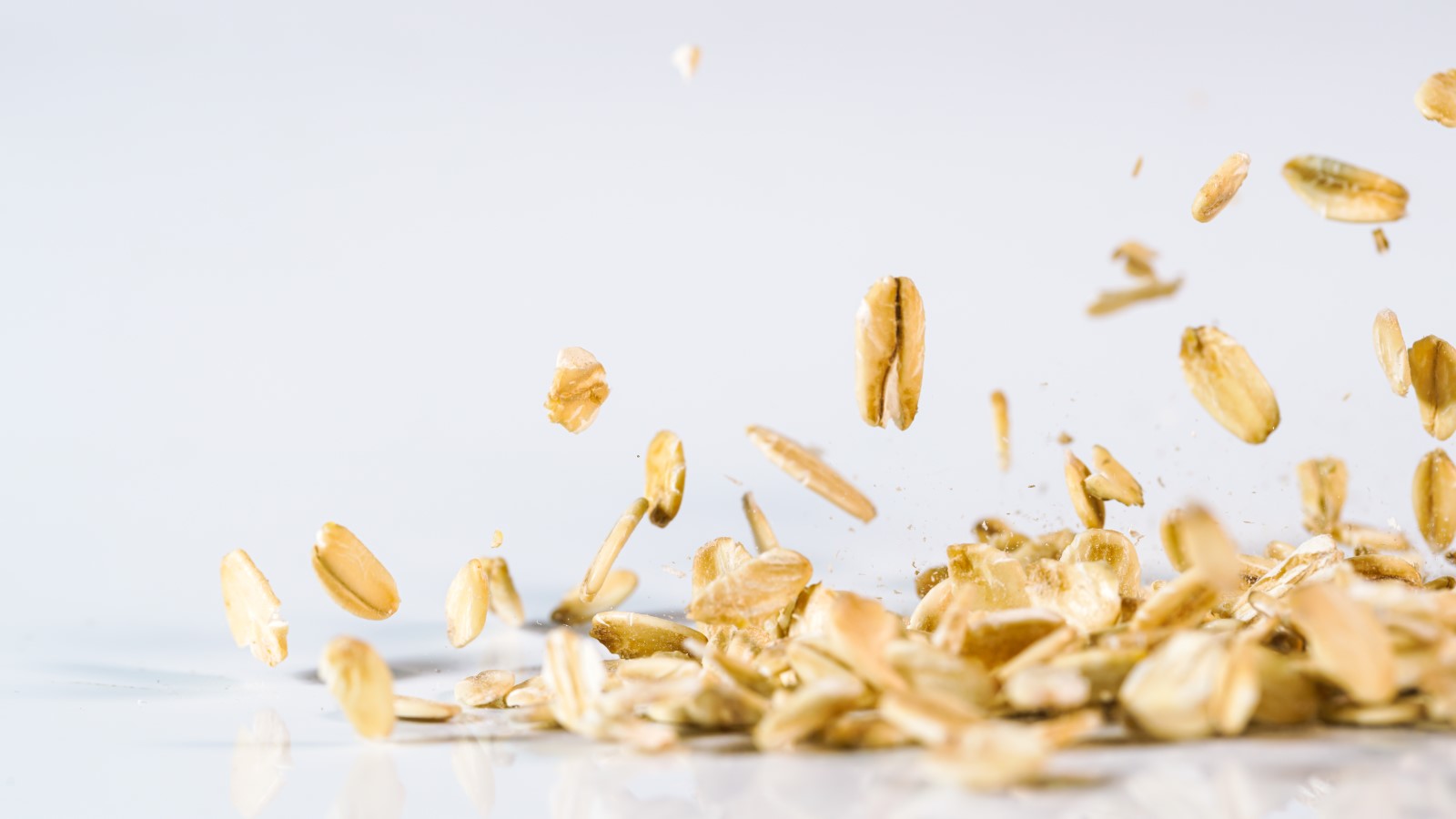
Design expertise in your inbox – from inspiring decorating ideas and beautiful celebrity homes to practical gardening advice and shopping round-ups.
You are now subscribed
Your newsletter sign-up was successful
Want to add more newsletters?

Twice a week
Homes&Gardens
The ultimate interior design resource from the world's leading experts - discover inspiring decorating ideas, color scheming know-how, garden inspiration and shopping expertise.

Once a week
In The Loop from Next In Design
Members of the Next in Design Circle will receive In the Loop, our weekly email filled with trade news, names to know and spotlight moments. Together we’re building a brighter design future.

Twice a week
Cucina
Whether you’re passionate about hosting exquisite dinners, experimenting with culinary trends, or perfecting your kitchen's design with timeless elegance and innovative functionality, this newsletter is here to inspire
There have been popular TikTok videos in recent years advocating the use of oatmeal as a fertilizing ‘hack’ for plants. This is not the usual type of coverage given to a staple breakfast ingredient and its heralding as a magic food for plants has led many people to ask – how is oatmeal good for plants?
Oatmeal actually has two surprising benefits for plants to discover. Not only does it contain valuable nutrients that plants need, but oatmeal can also successfully deter a wide range of garden pests.
If you are looking for inspiration to keep your best indoor plants looking at their finest, or keep pests from causing damage out in the backyard, then it might be worth considering the benefits offered by oatmeal.
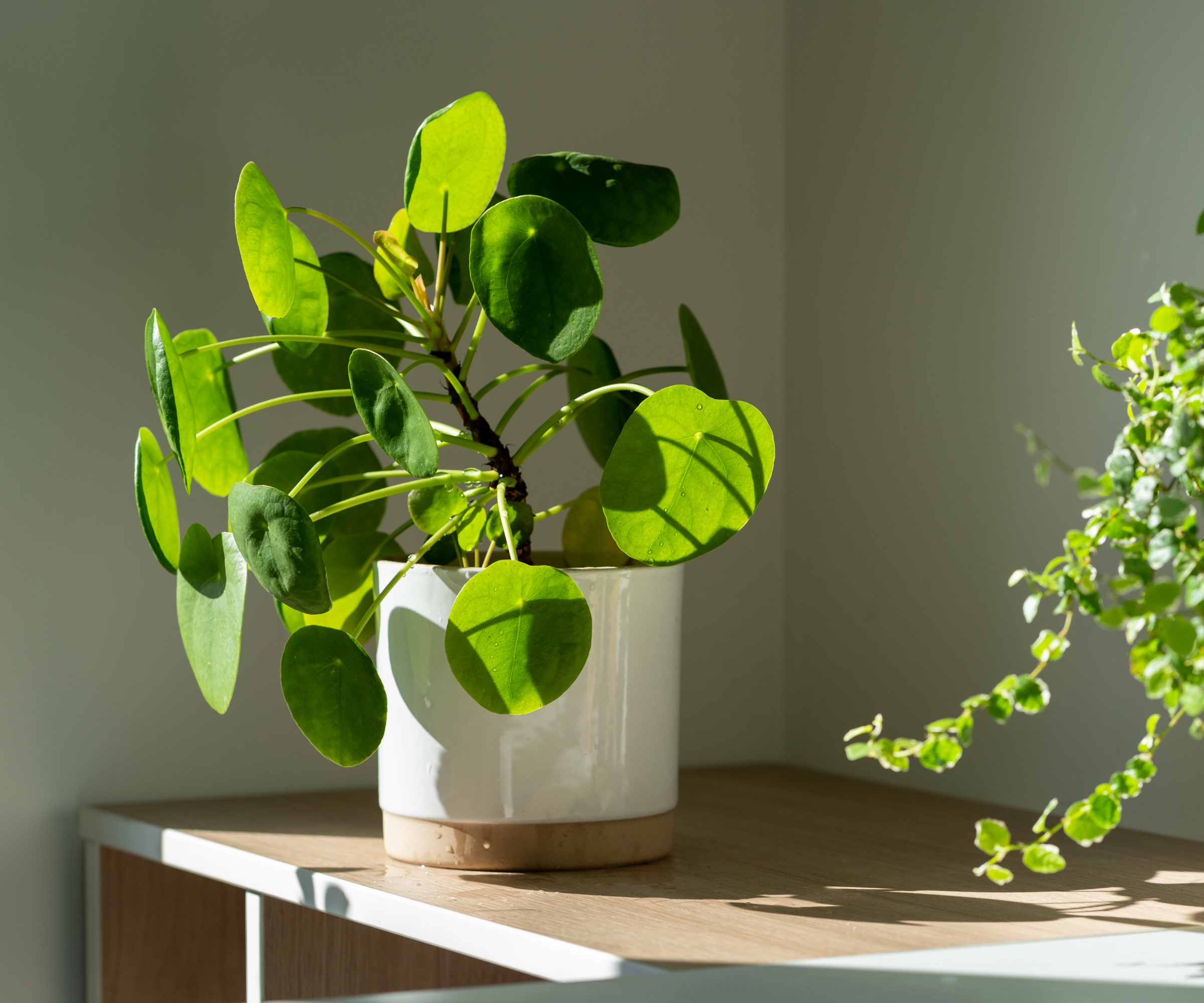
Viral TikTok videos show creators feeding houseplants with oatmeal

Drew is a former professional gardener who worked in several historic gardens across the UK, including the world famous Hidcote Manor Garden. He is a highly-experienced and trained gardener who has also spent a period as a specialist kitchen gardener, growing vegetables, fruit, and herbs for chefs.
Is oatmeal fertilizer good for plants?
Viral videos in recent years have seen oatmeal mixed with cinnamon and ground to a powder to be added to plants, and also oatmeal brewed with tea to make a liquid feed. It sits alongside another breakfast staple in coffee that can offer surprising benefits in the garden. Using coffee grounds on plants can both feed them and help deter slugs and snails too.
While a new generation of content creators have been proclaiming the benefits of oatmeal for their plants, using oatmeal in the gardens is not actually a new trend. It has been around for over a century as Dennis Sons, horticulturist at TN Nursery, explains: ‘Old timers in the early 1900s would warm water over a wood cook stove and put the oatmeal in for about five minutes (before it has time to thicken and start to cook) then strain with a cheesecloth the juice from it to pour around houseplants and garden plants.’
Oats contain many nutrients needed for healthy plants, including the main three of nitrogen, phosphorus and potassium. It is particularly high in phosphorus, which is key to strong root growth, and oats also contain good levels of magnesium, calcium, copper, and zinc – which are all vital in contributing to overall healthy plant growth.
Daniela Rey, a gardener and herbalist in Wrightwood, CA, describes oatmeal as ‘a rich source of nitrogen’ which is associated with vegetative growth and required in large amounts by plants.
Design expertise in your inbox – from inspiring decorating ideas and beautiful celebrity homes to practical gardening advice and shopping round-ups.
‘Nitrogen's most important purpose is to help plants grow big green foliage. It is used in many plant processes to synthesize amino acids, proteins, chlorophyll and enzymes,’ adds Daniela.
‘Oats also contain a unique type of fiber that nourishes and restores healthy bacteria in the soil. This bacteria helps break down organic matter in the soil, making it available to plants.
‘To use oatmeal in the garden, I suggest mixing it into the top layer of the soil or sprinkle it as a type of mulch over plants. As the oatmeal breaks down, it will release nutrients into the soil, like a slow-release fertilizer that can last several months.’
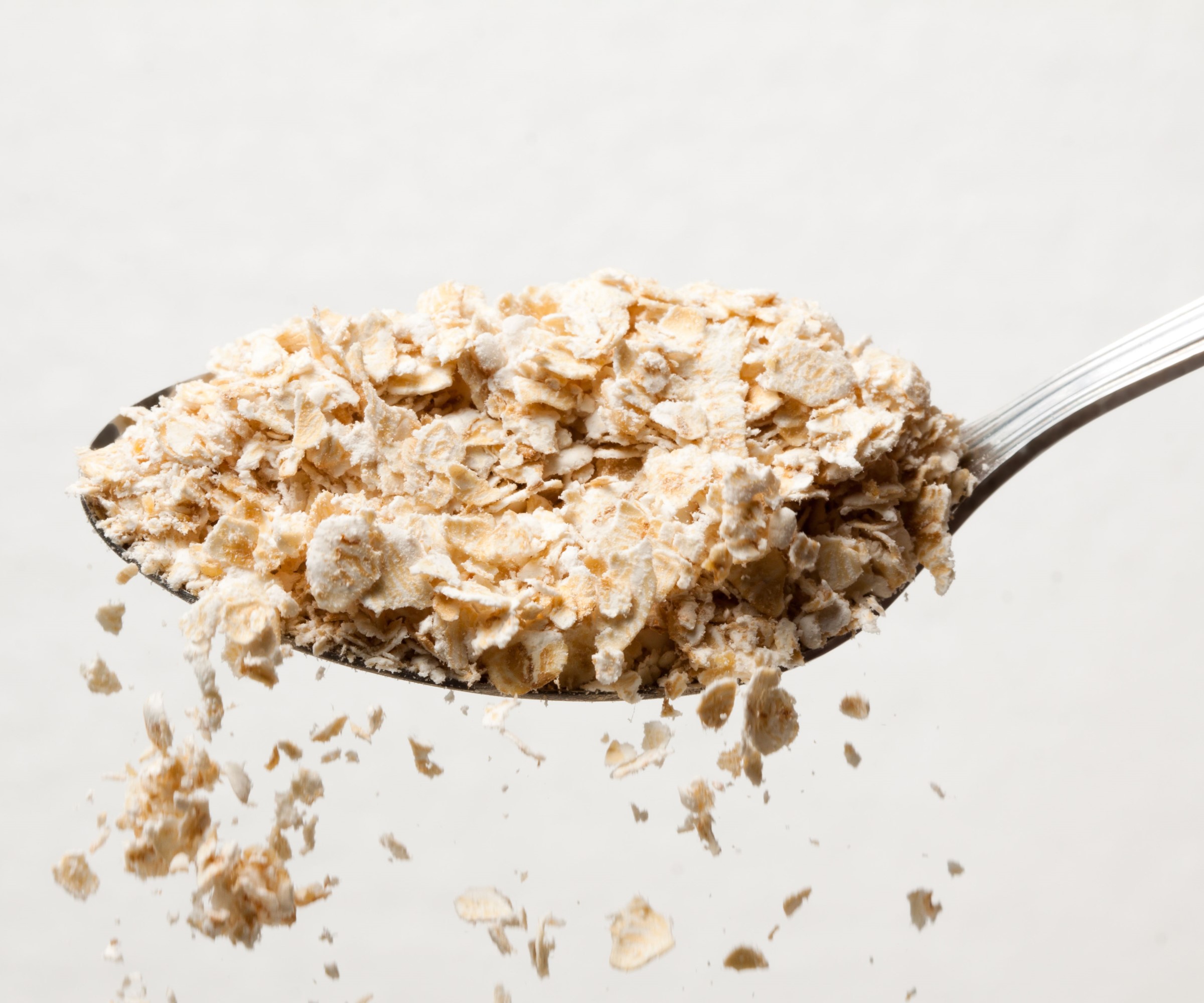
Oatmeal can be sprinkled around plants
Fans of using oats to fertilize plants do so in different ways. Along with the method outlined by Daniela above, hugely popular TikTok videos showcase adding water and making a liquid fertilizer and also grinding it to a fine powder to scatter on the soil of houseplants once a month. It must be remembered that when the oats are mixed with water they do tend to be left overnight, and then the oats must be strained out and just the water added to the plants.
Other suggestions I have seen include mixing a couple of spoonfuls into the soil of plants once a month and also sprinkling a handful of oatmeal into planting holes - which some claim stimulates root growth thanks to the high level of phosphorus.
Lindsey Hyland, founder of Urban Organic Yield, highlights oatmeal as a good fertilizer for some vegetable garden plants but warns that ‘not all’ the plants in your backyard will be thankful for it.
‘It is especially beneficial for tomatoes and other vegetables that need more nitrogen in their soil, such as cabbage, broccoli, kale, lettuce and spinach.
‘However, it should be avoided when fertilizing flowering plants or other more delicate varieties since it could lead to poor growth or seedling diseases caused by excessive moisture near the roots.’
Lots of the TikTok videos do show oatmeal being used successfully on houseplants, while Dennis Sons from TN Nursery adds that oatmeal is safe to use on any type of trees or shrubs. It is important to do research on particular plants and what feed is best for them before using oatmeal as a fertilizer, or get a soil pH test done to understand your soil types and any nutrient deficiencies you may have that could be affecting plants.
There are other alternatives for organic fertilizers made from common household food items, including using coffee grounds, eggshells, or banana peels as fertilizer.
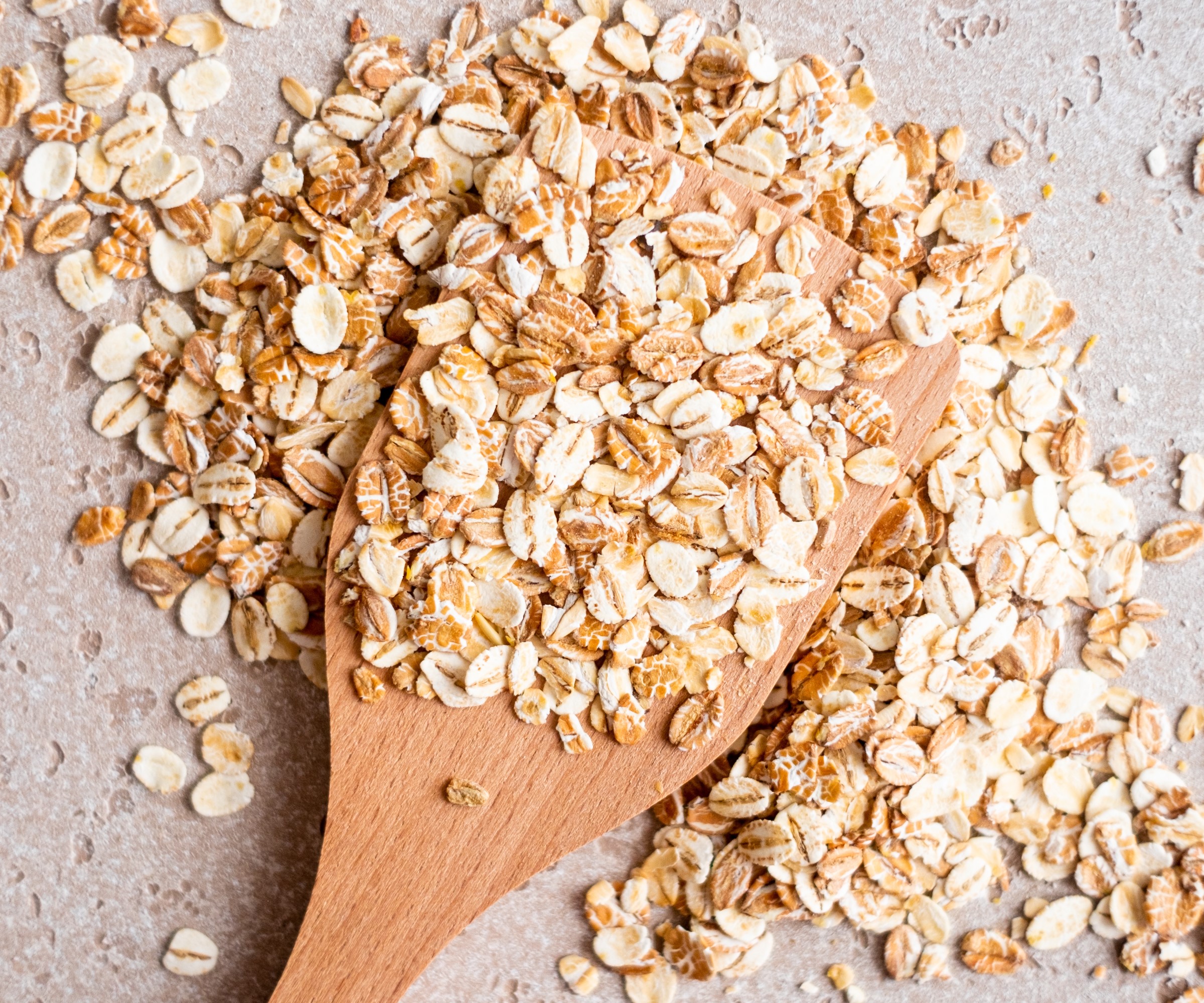
Oatmeal can be mixed with water to make a liquid feed or put straight in a planting hole
Cons of using oatmeal as fertilizer
There is, understandably, some cons of using oatmeal as fertilizer. This includes the risk of attracting pests or animals that are looking for food if the oatmeal is left on the surface of the soil. Always remember to mix in any oatmeal with the soil immediately after application to mitigate the risks of unwanted critters being attracted in the search for a meal.
Oats will never be able to offer the same long-term benefits as proper fertilizers. The high solubility of oats means it will leach nutrients and that is why most recommendations are to spread it once a month.
Also, the quantity of nutrients in the oatmeal will be very small compared to fertilizers you can buy – and you will never really understand the actual nutrient make-up of oatmeal in the way you can with fertilizers. At least with dedicated fertilizers you can see the exact NPK on offer on the label as plant fertilizer numbers and you can get fertilizers to target different crops and plants.
It should always be remembered that oatmeal is also not a complete fertilizer and cannot be relied upon on its own, always use in conjunction with other fertilizers.
Using oatmeal to deter pests
Another use for oatmeal in the garden is as a natural pest deterrent that can keep unwanted bugs from damaging your plants. One advantage of oatmeal to fight pests is that it is safe to use around humans and animals, yet can combat a wide range of potential pests.
Brad Smith, seasoned gardener and co-founder of Omi Home Ideas, recommends sprinkling oatmeal around the base of plants to ‘create a barrier that pests like slugs and snails will be reluctant to cross’.
‘Oatmeal can also be used to discourage cats and other animals from digging in the garden,’ adds Brad.
Lindsey Hyland hails the high content of saponins, a natural surfactant toxic to many insects, in oatmeal. The presence of saponins means it can be highly effective against a wide variety of outdoor critters and common houseplant pests.
She explains: ‘Oatmeal can help combat pests such as aphids, mites, Japanese beetles, codling moth larvae and some species of caterpillars. It is also known to repel slugs and deer away from gardens. To use oatmeal as a pest control method, mix it with water until it forms a thick paste and spread it on the affected plants and surrounding soil.’
When using oatmeal as a deterrent for pests, it is crucial to show some restraint and not spread too much around the plants. Spreading too much oatmeal to form a barrier on the surface of the soil has the potential to attract rodents looking for food and may result in having to get rid of rats as a result.
An alternative organic way to combat unwanted pests in your yard is using orange peel to deter pests, with the smell from either placing chopped up peel or making a spray capable of deterring many common pests.
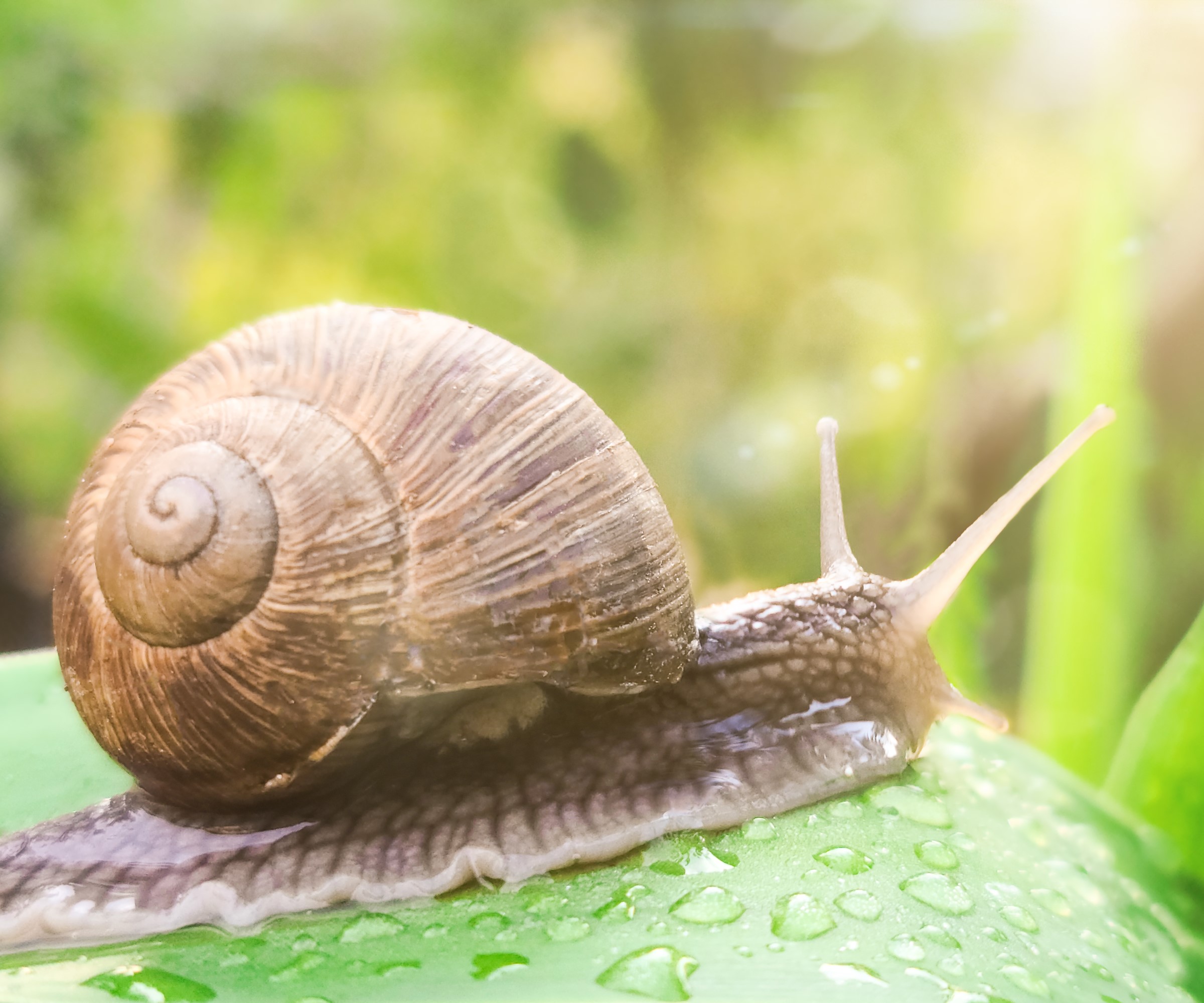
Oatmeal can be used as a barrier against snails
FAQs
Can you compost oats?
Uncooked oats can be added to a home compost and will easily break down over time, adding valuable nutrients into the compost. If milk or water were added to the oats, then it is important to drain these before adding the oats to the compost.
Who would believe that oatmeal offers such fantastic benefits to plants? That such a cupboard staple is capable of being both a great plant fertilizer and a deterrent of pests. If you want to experiment with more organic practices or are searching for ways to create a sustainable garden, then it could be seriously worth considering what can be done with oatmeal.

Drew has worked as a writer since 2008 and was also a professional gardener for many years. As a trained horticulturist, he worked in prestigious historic gardens, including Hanbury Hall and the world-famous Hidcote Manor Garden. He also spent time as a specialist kitchen gardener at Soho Farmhouse and Netherby Hall, where he grew vegetables, fruit, herbs, and cut flowers for restaurants. Drew has written for numerous print and online publications and is an allotment holder and garden blogger. He is shortlisted for the Digital Gardening Writer of the Year at the 2025 Garden Media Guild Awards.